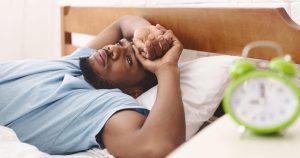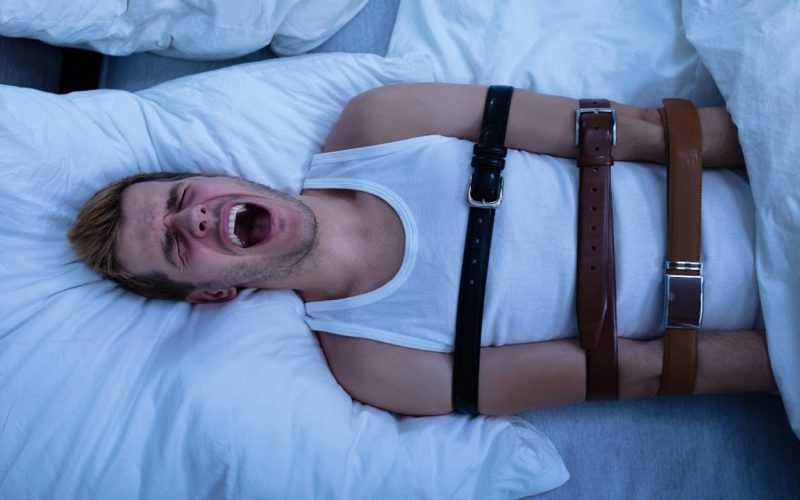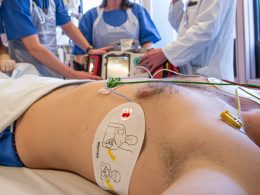Introduction
Sleep paralysis is a phenomenon that affects millions of people worldwide, leaving them feeling terrified and helpless as they temporarily lose control over their bodies during the transition between sleep and wakefulness. In this article, we’ll delve into the causes of sleep paralysis, explore its signs and symptoms, and discuss effective ways to alleviate and prevent this unsettling experience.
Understanding Sleep Paralysis
What is Sleep Paralysis?
Sleep paralysis is a state of temporary paralysis that occurs either when falling asleep (hypnagogic) or upon awakening (hypnopompic). During these episodes, individuals are unable to move or speak, despite being fully conscious of their surroundings. This sensation of being “locked in” can be accompanied by hallucinations, often of sinister figures or looming shadows, further intensifying feelings of fear and dread.
The Science Behind Sleep Paralysis
Research suggests that sleep paralysis occurs when the brain and body experience a disconnect between REM (rapid eye movement) sleep and wakefulness. During REM sleep, the body undergoes temporary muscle paralysis to prevent individuals from acting out their dreams. However, in cases of sleep paralysis, this paralysis persists even as the individual becomes conscious, resulting in a terrifying sensation of being unable to move.

Contributing Factors
Several factors can contribute to the occurrence of sleep paralysis, including:
- Sleep Deprivation: Irregular sleep patterns or consistently not getting enough sleep can increase the likelihood of experiencing sleep paralysis episodes.
- Stress and Anxiety: High levels of stress and anxiety can disrupt sleep cycles and trigger episodes of sleep paralysis.
- Sleep Disorders: Conditions such as narcolepsy or sleep apnea are often associated with sleep paralysis.
- Genetics: There may be a genetic component to sleep paralysis, with some individuals being more predisposed to experiencing it than others.
- Substance Use: Certain medications, recreational drugs, or alcohol can disrupt normal sleep patterns and increase the risk of sleep paralysis.
Signs and Symptoms of Sleep Paralysis
Paralysis
The hallmark symptom of sleep paralysis is the inability to move or speak despite being fully awake. This sensation of paralysis can be accompanied by feelings of pressure or weight on the chest, making breathing difficult.
Hallucinations
Many individuals who experience sleep paralysis report vivid hallucinations, often of shadowy figures or menacing entities. These hallucinations can be extremely distressing and contribute to feelings of fear and panic during episodes of paralysis.
Sensory Disturbances
Some people may also experience sensory disturbances during paralysis, such as tingling sensations, buzzing noises, or the feeling of being touched or grabbed by unseen hands.
Emotional Distress
The intense fear and panic associated with paralysis can lead to significant emotional distress, including anxiety, depression, and difficulty sleeping. Explore More About (Swelling Ankles)

Coping Strategies and Treatment Options
While sleep paralysis can be a frightening experience, there are several strategies and techniques that individuals can employ to reduce its frequency and alleviate its symptoms:
Improve Sleep Hygiene
Establishing a consistent sleep schedule, creating a relaxing bedtime routine, and optimizing sleep environment can help promote restful sleep and reduce the likelihood of paralysis episodes.
Manage Stress and Anxiety
Practicing relaxation techniques such as deep breathing, meditation, or progressive muscle relaxation can help reduce stress and anxiety levels, making paralysis less likely to occur.
Address Underlying Sleep Disorders
If paralysis is occurring in conjunction with other sleep disorders such as narcolepsy or sleep apnea, seeking treatment for these conditions can help alleviate symptoms and improve overall sleep quality.
Medication
In some cases, doctors may prescribe medication to help regulate sleep cycles and reduce the occurrence of paralysis episodes. However, these medications are typically reserved for severe cases and may have potential side effects.
Cognitive-Behavioral Therapy (CBT)
CBT techniques such as cognitive restructuring and exposure therapy have been shown to be effective in reducing the frequency and severity of paralysis episodes by addressing underlying fears and anxieties.

Coping Strategies
| Coping Strategy | Description |
|---|---|
| Improve Sleep Hygiene | Establish consistent sleep schedule, create relaxing bedtime routine, optimize sleep environment |
| Manage Stress and Anxiety | Practice relaxation techniques such as deep breathing, meditation, or progressive muscle relaxation |
| Address Underlying Sleep Disorders | Seek treatment for conditions like narcolepsy or sleep apnea to improve overall sleep quality |
| Medication | Prescribed medications to regulate sleep cycles and reduce occurrence of sleep paralysis episodes (reserved for severe cases) |
| Cognitive-Behavioral Therapy (CBT) | CBT techniques to address underlying fears and anxieties associated with sleep paralysis |
Conclusion
paralysis is a complex and often distressing phenomenon that can significantly impact an individual’s quality of life. By understanding the underlying causes and implementing effective coping strategies, individuals can learn to manage and reduce the frequency of paralysis episodes, allowing for a more restful and peaceful night’s sleep. If you or someone you know is experiencing paralysis regularly, it’s essential to consult with a healthcare professional to rule out any underlying medical conditions and explore appropriate treatment options.












